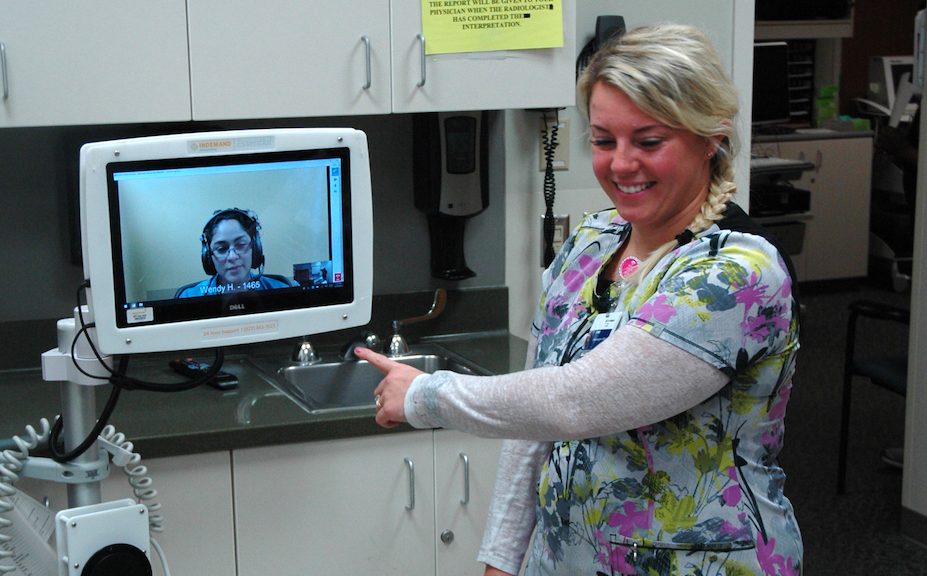Imagine being a person needing urgent medical care, but you don’t speak the language. More than 25 million Americans have limited English proficiency (LEP).
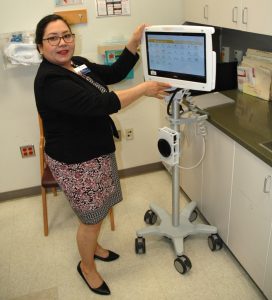
Providence St. Peter Hospital, an integral part of our community for decades, not only believes everyone ought to have access to an interpreter for optimal communication, but provides the services that accomplish this. Elsie Rodriguez Paz is the coordinator of interpretive services for both Providence St. Peter Hospital and Providence Centralia Hospital. She has previously served as a community medical interpreter and truly understands the value for all involved.
Providence uses community interpreters, telephonic interpreters and video remote interpreter (VRI) devices throughout the hospital using a service called INDEMAND Interpreting or INDE for short. Interpreters are standing by at all hours to live stream with the caregiver and patient. There are 28 languages available for face-to-face communicating, which adds the ability for people to communicate not only with words, but also with facial expressions and body gestures. There are over 200 languages available through the telephonic interpreter service. Providence also offers a telephonic interpreter service that specializes in indigenous languages. Sign language is frequently used as part of the program, too and community ASL interpreters are available upon patient request. In our area the most requested languages are Spanish, Korean, Vietnamese, Samoan, and Cambodian.
Providence uses professional, medical interpreters – providing services in person or through a service like In Demand which means they speak English and the target language plus they are trained in medical terminology and adhere to generally accepted interpreter ethics principles including patient confidentiality. Not surprisingly, when friends, family members or children do the interpreting, there is a much greater likelihood for errors and misunderstandings. “Providing interpretive services helps us to deliver the best possible care to our patients,” says Providence Southwest Washington Chief Nursing Officer Michelle James. “It aligns with our mission of caring for all.”
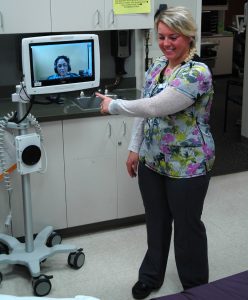
The population of people with LEP is estimated to be approximately 5 percent. They are at a higher risk for adverse outcomes when receiving health care. There can be incomplete understanding of symptoms and diagnoses or drug complications. St. Peter Hospital emergency rooms see 200 people each day, which means 10 of them needed help with communicating. In January alone, Providence had 778 individual encounters with various interpreters. That totaled 390 hours of service including in-person, telephonic and video.
Title VI of the Civil Rights Act mandates that patients with limited English proficiency receive interpreter services. Being an unfunded mandate, this means that there is no state or federal reimbursement for these services. Nor do insurance companies provide funds. Providence takes this mandate seriously and continues to upgrade its resources to provide the best interpretive services that are available. These services are integrated throughout the hospital and no patient is charged for them.
New Community Interpreter Line
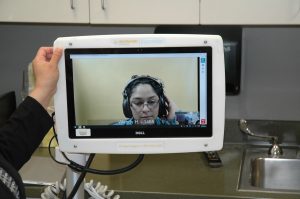
In line with their goals to provide the best language resources possible, Providence now has a Community Interpreter Line. Write it down: 888.429.3464. “The Community Interpreter Line complements the range of interpretation services offered by Providence Southwest,” explains Elsie.
This line will connect patients and community members who have limited English proficiency to Providence facilities in the Southwest Service Area. Maybe it is something as simple as changing or making an appointment. It might be a more complicated need such as obtaining medical records. “We want people to have the same level of access as an English speaker,” emphasizes Elsie.
When a community member calls the Community Interpreter Line, the operator connects the caller with an interpreter. The interpreter then connects with a Providence operator who will connect the caller and interpreter with the desired department. Part of the coordinator’s job is training the hospital teams in the use of interpreter services like INDE and also to get to know the interpreters whose faces appear on the screens.
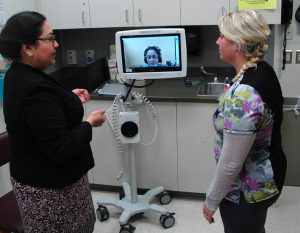
Clear communication can be challenging and even more so when it involves explaining medical conditions and understanding medical treatment. Providence’s use of interpreters crosses language barriers that challenge many of our community members. As a native English speaker, I take such communications for granted. I also travel frequently to places where English is not the primary spoken language. For a moment, I imagine myself requiring medical help. Stressful times make everything more complicated. It doesn’t take long for me to understand why optimal interpretation skills are so critical. “Interpreters are an essential part of the care team,” says Elsie.
If you are curious about all the interpretive services provided by Providence you can click here. Please share this information with friends and family members.
The Community Interpreter Line for Providence is 888.429.3464.
Sponsored








































